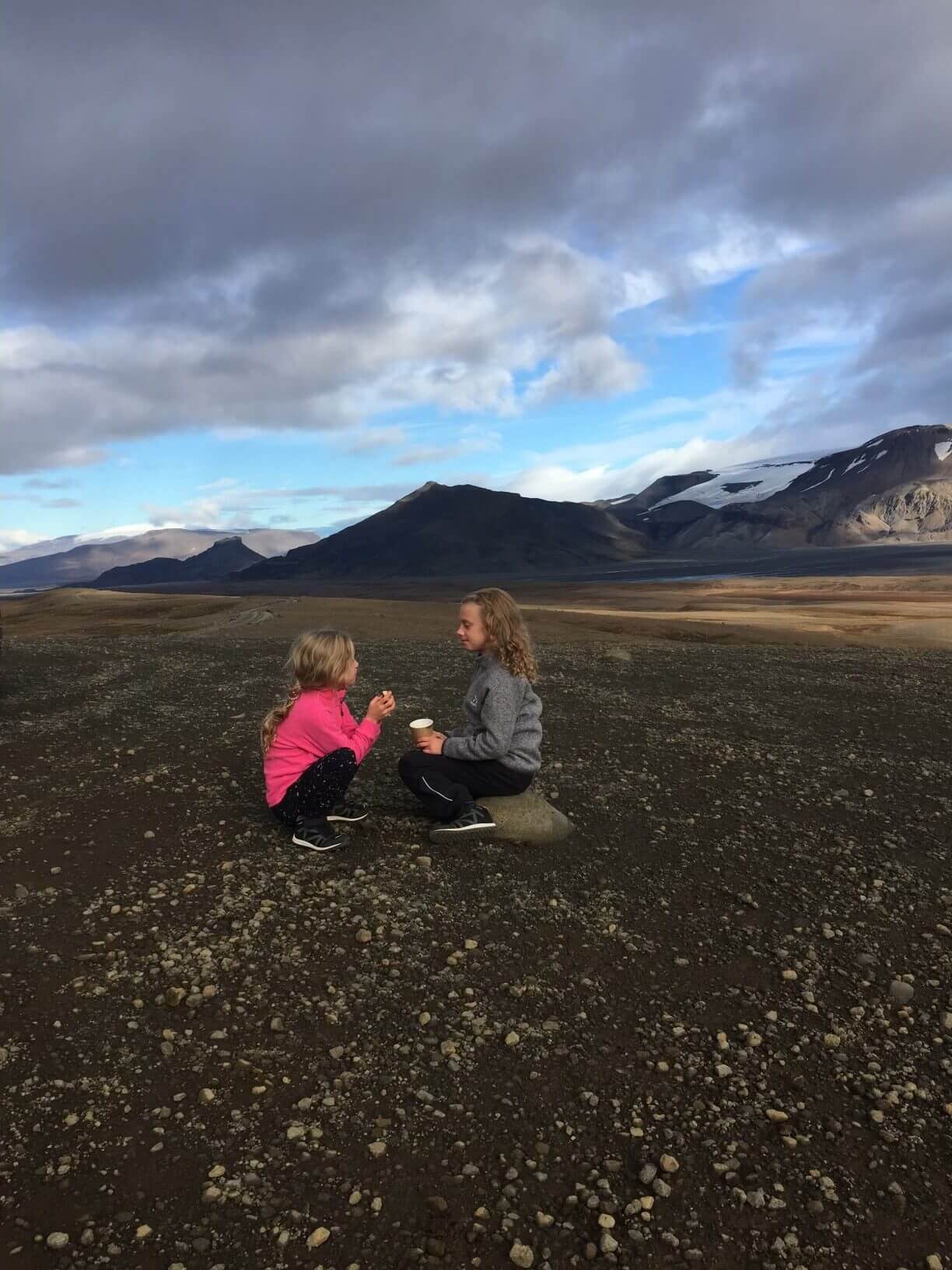The Importance of Connection from Birth
As parents, it’s important to understand our natural human desire for connection so that we can meet our children there; and by meeting them there, we provide our children with a sense of safety and fulfillment. Otherwise, they will try to find it in other places like what happened to me.
This innate desire begins in the womb and continues once we are born. We are connected to our mothers physically and energetically. From the very first moment, mother and baby are connected and are one inter-dependent unit. Things like breastfeeding, skin-to-skin touch, and a mother’s unconditional love are primal and, at the same time, crucial in a baby’s ability to thrive.
Historical and Cultural Shifts
During World War II, newborn babies were removed from London hospitals and moved to larger wards in the north without their mothers to be safe from the bombings. They had plenty of food and nurses who took excellent care of them, but they failed to thrive because they needed to be physically nurtured, touched, and connected with.
We used to live in tribes and groups, dependent on one another for basic needs like food and water collection. Not long ago, we all slept together in caves. A baby wouldn’t leave its mother’s side until a much later age. Babies would spend all day with their mothers or another caregiver, feeling the softness and warmth of human touch.
Our babies are in cribs in their own rooms in our modern age, sometimes from day one. We are busy, distracted, and a deep energetic connection with your newborn might not be as natural as it used to be.
Since most of our basic necessities are quickly and easily accessed these days, we are not dependent on our tribe to survive. Commonly, humans live years or even decades by themselves. Yet, less than a century ago, such isolation was unheard of and impossible.

Emotional Bonds and Psychological Experiments
The groundbreaking Still Face Experiment, first presented by Dr. Edward Tronick and colleagues in 1975, showed that a child feels some form of abandonment almost immediately if its mother disengages or withdraws. Dr. Tronick states that after three minutes of attempted interaction with an expressionless mother, a child “rapidly sobers and grows wary. He makes repeated attempts to get the interaction into its usual reciprocal pattern. When these attempts fail, the infant withdraws [and] orients his face and body away from his mother with a withdrawn, hopeless facial expression.”
In other words, when the mother is not present and not responsive, babies feel a sense of abandonment and even hopelessness. This sense of disconnection can bring about a feeling of fear and not feeling safe.
A Mother's Health and the Fantasy Bond
In “The Fantasy Bond,” Dr. Robert Firestone describes how when a mother leaves the room, babies in their crib will start making up stories, fantasies of connection, as a method of survival. The subconscious strategies are ways the infant begins to cope with the fact that mother and child cannot be physically together at all times. When these strategies evolve in a balanced way, they become a part of a healthy foundation.
The mother’s emotional health, her ability to be present, and the signals she sends when physically present create a nurturing bond and a feeling of safety that lasts when the baby is alone and will buffer the occasional physical separation. A mother who is emotionally mindful of her connection with her baby will have a better chance to create this bond successfully.
Unfortunately, if a parent is emotionally unavailable and is struggling in some way with less ability to be present and nurturing, the baby may be left feeling even more unsettled, unsafe, and anxious when left alone. Subconscious stories might develop, such as a belief that if the parent leaves the room, the parent no longer exists, which will cause great distress.
As Children Age: Parental Guidance and Emotional Health
As children get older, depending on how their needs were met in infancy, their need for connection will continue in various ways. As they get older, the direction we guide them is up to us. Toddlers are still in a prime, open state of searching for connection, always excited when their mother comes home. They want to show you what they’re doing, to play with you. They want to be with you and interact in any way they can.
As parents, it’s important to know that children are watching. What can we do to show them how to feel connected to a part of a larger whole? What can we do with our time to make our children feel close to us? Are we coming home from stressful days and automatically pouring a glass of wine, putting on the TV, and scrolling through our emails? Or, are we sitting down with our families to talk about the day, snuggling and reading a book, or spending time together on the couch? Be mindful of what you are doing to unwind and replenish yourself. The way you care for yourself is how your children will think it is done too.
As children reach the age of 9, the energetic bond that connects mother and child starts to dissolve, and the child becomes a separate individual. It’s common to see an increase in stress and anxiety at this age. This is because they have been living in the energetic cocoon of their mother, and that cocoon begins to dissolve. This is a crucial time in a child’s life, and we parents must acknowledge that this time is important when it comes to providing safety and a stable, nurturing environment.
Mothers and caretakers should aim to be as present as possible and guide children through this time, using language that underlines a feeling of safety and emphasizes connection to the people around them. If this support is missing, the result may be that the child feels lonely, out of sync, and unconsciously unaware of his place in this world.
Ultimately, if the needs aren’t filled, children will start seeking other means to connect. Depending on how aware we are, the ways we fill our own innate need for connection, we might notice this shift in our children or not.
The Pressure of Modern Life and Its Effects
Most families growing up in the modern world are overstretched with work, activities, and homework. The pressure is high. But I have witnessed families where this pressure doesn’t end up taking away from the underlying feeling of safety and togetherness.
I have a close friend who flies all over the U.S. as an executive during the week and is home on weekends. When she’s home, she’s very present. Her focus is entirely on her family, and the result is that they are very connected. Even if she isn’t always physically present, her ability to focus on her family when they’re together sets the tone for the rest of the week.
On the contrary, I will never forget being in the lobby of a hotel in Miami. Across from us, a mother was sitting with her 4-year old son on one of the couches. The mother was scrolling on her phone while her son was sitting next to her quietly. Suddenly, he snatched her cell phone out of her hand and threw it across the hotel lobby. Silently, without reaction and without a word, she got up and went to get her phone and then sat back down and started scrolling again. The fact that the little boy had failed to get any response at all was even worse than if she had been angry and scolded him; as if in a trance, her son’s attempt to get her attention had failed.
Nurturing and Connection through Being Present
I encourage you to ask yourself – are you able to create a nurturing and connected environment for you and your loved ones? Are you fulfilling your own need for connection through healthy methods like a conversation, walks in the woods with a friend, or laughing with your kids?
What are the things you might be doing that make you feel frazzled and distracted? What motivates you, and what is your internal sense of purpose? So many of us are stuck in a rut. On the move, driving, scheduling, and going places. What for? Notice what you are or what you are not doing and bring awareness to how it might be affecting your children or loved ones.
As parents, we can nurture our children’s hardwiring for connection by being present and meeting their needs from a young age. It’s important to make sure we’re taking care of our own emotional health so that we’re in a position to show up focused and present for our children. This will translate into a feeling of safety. Maintaining this presence and connection with them is critical as they get older. If they continue to feel safe and nurtured at home and in their relationships with family, they will be less apt to search for it through other means. They’ll know the connection they need is right there with them all the time.
At the end of the day, as a species, we are looking to have our need for connection met. It’s an innate human trait. We want to feel connected to others and the world at large. We want to be with our families and friends. We don’t do well left alone for long periods of time. For children and adults, a lack of real connection is detrimental. It’s an important piece in understanding the purpose of living.







